 The Wireless technologies have made deployment of the Internet more scalable reaching over 5 Billions Internet users worldwide starting with 3G back in 1999 and the subsequent versions of 4G, 5G and now 6G. Every version is sold with some hope and some hype. Every new version fixes some previous hype and sets new hopes or even replace the previous version.
The Wireless technologies have made deployment of the Internet more scalable reaching over 5 Billions Internet users worldwide starting with 3G back in 1999 and the subsequent versions of 4G, 5G and now 6G. Every version is sold with some hope and some hype. Every new version fixes some previous hype and sets new hopes or even replace the previous version.
Now, is it going to be the case for 6G?
Will it over-trump 5G or be complementary to 5G?
The 6G Vertical summit will address the real technology opportunities and the new challenges and physical constraints of the terahertz spectrum. The objectives of these sessions are to outline clearly what 6G will bring to the table with some reasonable sanity check to support and orient the research community into the right direction of making 6G a real success story.
Speakers from industry, standardization and research will be invited to share with neutrality their first recommendations substantiated by some first trials results.
Experts speakers from primarily industry will be invited to 3 sessions of 90 min.
6G Summit Session 1: Moderator, Latif Ladid, Founder & President, IPv6 Forum
- 11:00 Ari Pouttu, 6G Flagship Collaborative Projects Leader, University of Oulu
- 11:20 Bernard Barani, Deputy head of unit in the CONNECT Directorate General of the European Commission
- 11:40 Adrian Scrase, 3GPP Secretary, CTO, ETSI
- 12:00 Gerhard P. Fettweis F’09, is Vodafone Chair Professor at TU Dresden
- 12:20 Henning Schulzrinne, Levi Professor of Computer Science at Columbia University
- 12:40 Q&A
6G Summit Session 2: Moderator, Ari Pouttu, 6G Flagship Collaborative Projects Leader
- 14:00 Matti Latva-aho, Prof., Director for 6G Flagship, Univ. of Oulu, FI)
- 14:20 Rahim Tafazolli is Regius Professor, University of Surrey.
- 14:40 Dragan Samardzija, Nokia Bell Labs, Belgium
- 15:00 David Soldani, Adj Professor, UNSW SYDNEY
- 15:30 Q&A
Speakers
Gerhard Fettweis
Dr. Gerhard P. Fettweis F’09, is Vodafone Chair Professor at TU Dresden since 1994, and heads the Barkhausen Institute since 2018, respectively. He earned his Ph.D. under H. Meyr’s supervision from RWTH Aachen in 1990. After one year at IBM Research in San Jose, CA, he moved to TCSI Inc., Berkeley, CA. He coordinates the 5G Lab Germany, and has coordinated 2 German Science Foundation (DFG) centers at TU Dresden, namely cfaed and HAEC. In 2019 he was elected into the DFG Senate. His research focusses on wireless transmission and chip design for wireless/IoT platforms, with 20 companies from Asia/Europe/US sponsoring his research. He also serves on the board of National Instruments Corp, and advises other companies.
Gerhard is IEEE Fellow, member of the German Academy of Sciences (Leopoldina), the German Academy of Engineering (acatech), and received multiple IEEE recognitions as well has the VDE ring of honor. In Dresden his team has spun-out seventeen start-ups, and setup funded projects in volume of close to EUR 1/2 billion. He co-chairs the IEEE 5G/Future Networks Initiative, and has helped organizing IEEE conferences, most notably as TPC Chair of ICC 2009 and of TTM 2012, and as General Chair of VTC Spring 2013 and DATE 2014.
Adrian Scrase
Adrian Scrase played a central role in the creation of the “3rd Generation Partnership Project” (3GPP) and is responsible for the operations of the 3GPP Project Co-ordination Group. He heads 3GPPs’ Mobile Competence Centre (MCC) which is an International team of 20 experts who provide comprehensive support to the Project. He is CTO within ETSI with operational responsibility for all of ETSI’s standards production activities. He has more than 30 years experience in the telecommunications field, which includes 25 years of experience in standardization.
Henning Schulzrinne
Prof. Henning Schulzrinne, Levi Professor of Computer Science at Columbia University, received his Ph.D. from the University of Massachusetts in Amherst, Massachusetts. He was a member of technical staff at AT&T Bell Laboratories, Murray Hill and an associate department head at GMD-Fokus (Berlin), before joining the Computer Science and Electrical Engineering departments at Columbia University. He served as chair of Computer Science Department from 2004 to 2009, and as Engineering Fellow, Technical Advisor, and Chief Technology Officer of the Federal Communications Commission (FCC) from 2010 until 2017. Protocol standards co-developed by Schulzrinne, including RTP, RTSP and SIP, are now used by almost all Internet telephony and multimedia applications. He is a fellow of the ACM and IEEE.
Rahim Tafazolli
Rahim Tafazolli is Regius Professor of Electronic Engineering, Fellow of Royal Academy of Engineering, (FREng), FIET, Fellow of WWRF, Professor of Mobile and Satellite Communications, Founder and Director of 5GIC, 6GIC and ICS (Institute for Communication System) at the University of Surrey. He has over 30 years of experience in digital communications research and teaching. He has authored and co-authored more than 1000 research publications and is regularly invited to deliver keynote talks and distinguished lectures to international conferences and workshops. He was an Advisor to the Mayor of London in regard to the London Infrastructure Investment 2050 Plan. He has given many interviews to international media in the form of television, radio interviews, and articles in international press.
Bernard Barani
Bernard Barani joined the European Commission in 1994 after 11 years as Communication engineer in industry on military optical systems and then with the European Space Agency on advanced satcom programmes. Since 1994, he has been responsible for the strategy and the implementation of European research and policy issues in wireless communication, audio visual systems, RFID, Internet of Things and networked enterprise systems. He is currently Deputy head of unit in the CONNECT Directorate General of the European Commission where he leads the definition and implementation of the 5G Public Private Partnership launched in 2013, the industrial EC initiative to support 5G European R&D and deployment. Main field of activities covers strategic R&D planning and implementation including future beyond 5G systems, standardisation, international cooperation, demonstration and pilot programmes, and the implementation of the 5G Action Plan launched in 2016 to support early 5G deployment in Europe. He also has a lead role to define the future Public Private Partnership on Smart Networks and Services (6G) targeted for implementation under the Horizon Europe programme in the 2021-2027 time frame.
He is also vice chairman of the Steering committee of the EUCNC conference, the main showcasing event for telecom research sponsored by the EU programmes. He has an engineering degree from the “Ecole National Supérieure des Télécommunications de Bretagne”.
David Soldani
David Soldani received a Master of Science (M.Sc.) degree in Engineering with full marks and magna cum laude approbatur from the University of Florence, Italy, in 1994; and a Doctor of Science (D.Sc.) degree in Technology with distinction from Helsinki University of Technology, Finland, in 2006. In 2014, 2016 and 2018 he was appointed Visiting Professor, Industry Professor, and Adjunct Professor at University of Surrey, UK, University of Technology Sydney (UTS), Australia, and University of New South Wales (UNSW), respectively. Since 2018, Dr. Soldani has been contributing at Huawei Technologies as Chief Technology Officer (CTO) and Cyber Security Officer (CSO) within the ASIA Pacific Region; and, since 2020, he has been serving IMDA, in Singapore, as Chairman of the IMDA 5G task force. Prior to that he was Head of 5G Technology, e2e, Global, at Nokia; and Head of Central Research Institute (CRI) and VP Strategic Research and Innovation in Europe, at Huawei European Research Centre (ERC). David can be reached online at: https://www.linkedin.com/in/dr-david-soldani.
Matti Latva-aho
Matti Latva-aho is a Director for 6G Flagship Program in Oulu, Finland, and serves as an Academy Professor in the University of Oulu, where he has worked on wireless communications research since early 1990s. He was a Director of Centre for Wireless Communications (CWC) at the University of Oulu during the years 1998−2006, and a Head of Department of Communication Engineering until 2014. Prior to his joining the CWC, Matti worked as a Research Engineer at Nokia Mobile Phones in Oulu, Finland. Matti completed his Ph.D. in Electrical Engineering at the University of Oulu, Finland in 1998. His research interests lie in the area of wireless radio data communications, and currently his research group focuses on 6G systems research ranging from theory to design and implementation. He has worked so far with all the generations from 1G to 6G of mobile networks. Matti has published close to 500 conference or journal papers in the area of wireless communications. He has received a several awards, including Nokia Foundation Award in 2015 for his achievements in wireless communications research.
Dragan Samardzija
Dragan Samardzija received a Ph.D. degree in electrical engineering from Wireless Information Network Laboratory (WINLAB), Rutgers University, USA in 2004. He is the head of the Bell Labs Platform and ASIC research lab and has global responsibility for 6G-related research on Cloud RAN, SoC, RFIC, proof-of-concept realizations and testbeds. He received the Bell Labs Fellow award in 2017, has authored over 50 peer-reviewed publications and has numerous patents granted.
Co-Chairs
Ari Pouttu
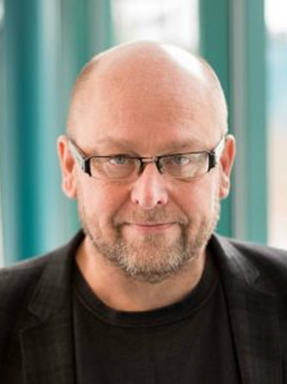
Prof. Ari Pouttu has scientific and engineering experience as a researcher, project manager and research manager in various domains of ICT development. The projects under his command have resulted in waveforms and system designs for military radio communication, radar systems, embedded device networks, future wireless radio communications including cellular systems, cognitive networks and navigation applications.
He has published more than 60 conference or journal papers in the field of wireless communications and he holds two patents. He was the Director of Centre for Wireless Communications in the University of Oulu from 2006 to 2012. Currently he is heading as a professor a research group targeting dependable wireless solutions for business verticals such as energy, industry, health and automotive including solutions for 5G. He is the principal investigator of 5G test network (5GTN) experimental research, co-PI of H2020 Sat5G project and is acting as vice-director of the national 6Genesis flagship targeting 6G solutions.
Latif Ladid

Latif LADID, Founder & President, IPv6 FORUM (www.ipv6forum.org ); Member of 3GPP PCG (Board) (www.3gpp.org); IEEE 5G World Forum founding co-chair, Emeritus Trustee, Internet Society – ISOC (www.isoc.org); IPv6 Ready & Enabled Logos Program Board (www.ipv6ready.org); Chair, ETSI IPE/IPv6 Industry Specification Group; Member of Future Internet Forum EU Member States (representing the Luxembourg government).


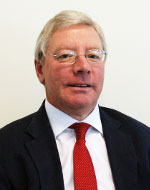

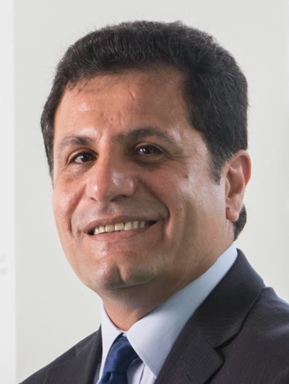 Rahim Tafazolli
Rahim Tafazolli Bernard Barani
Bernard Barani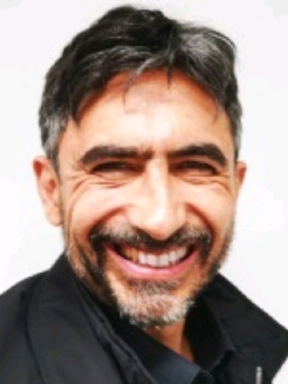 David Soldani
David Soldani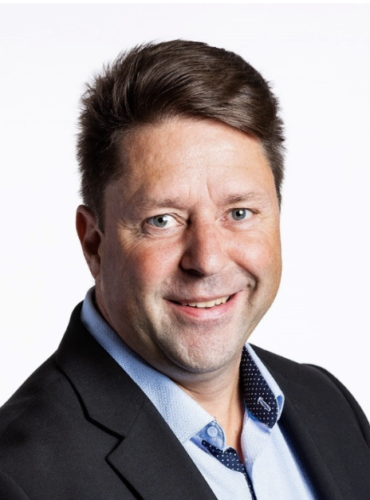 Matti Latva-aho
Matti Latva-aho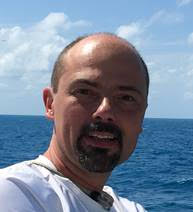 Dragan Samardzija
Dragan Samardzija